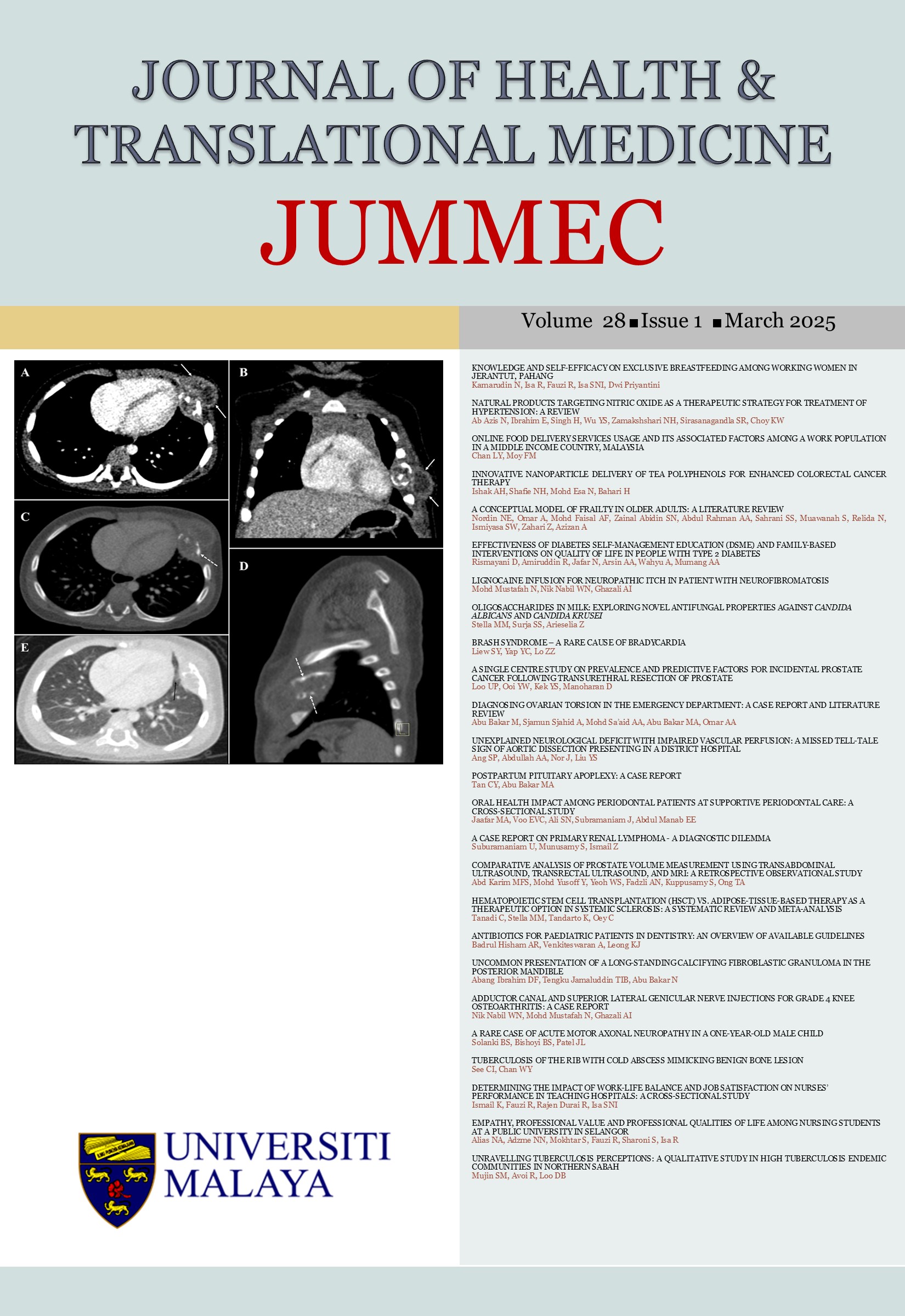KNOWLEDGE AND SELF-EFFICACY ON EXCLUSIVE BREASTFEEDING AMONG WORKING WOMEN IN JERANTUT, PAHANG
Received 2023-07-17; Accepted 2024-04-02; Published 2025-01-02
DOI:
https://doi.org/10.22452/jummec.vol28no1.1Keywords:
Exclusive breastfeeding, Knowledge, Self-efficacyAbstract
Providing essential nutrients to support healthy growth and development in young infants is commonly achieved through breastfeeding, a traditional means of nourishment. In Malaysia, even though more awareness campaigns on the benefits of exclusive breastfeeding (EBF) remain low than the rate recommended by WHO. This study was done to determine level of knowledge and self–efficacy on exclusive breastfeeding among working women in Jerantut. A cross-sectional study was conducted among the community of working women in Mukim Pedah with the involvement of 375 respondents by convenient sampling. A questionnaire was used to collect data on the respondents' sociodemographic characteristics, breastfeeding knowledge and Breastfeeding Self-Efficacy Scale – Short Form (BSES-SF). 93.1% of respondents had high level knowledge of exclusive breastfeeding, and high level of self-efficacy (83.7%). There was a statistically significant association between breastfeeding education with knowledge level in exclusive breastfeeding (p <0.05). There was a statistically significant association between age, education level, parity, breastfeeding education and experience in breastfeeding with self–efficacy (p<0.95). Exclusive breastfeeding benefits the health of both mother and child; having good knowledge and confidence in EBF may encourage mothers to breastfeed their babies for extended periods.
Downloads
Downloads
Published
Issue
Section
License
All authors agree that the article, if editorially accepted for publication, shall be licensed under the Creative Commons Attribution License 4.0 to allow others to freely access, copy and use research provided the author is correctly attributed, unless otherwise stated. All articles are available online without charge or other barriers to access. However, anyone wishing to reproduce large quantities of an article (250+) should inform the publisher. Any opinion expressed in the articles are those of the authors and do not reflect that of the University of Malaya, 50603 Kuala Lumpur, Malaysia.


